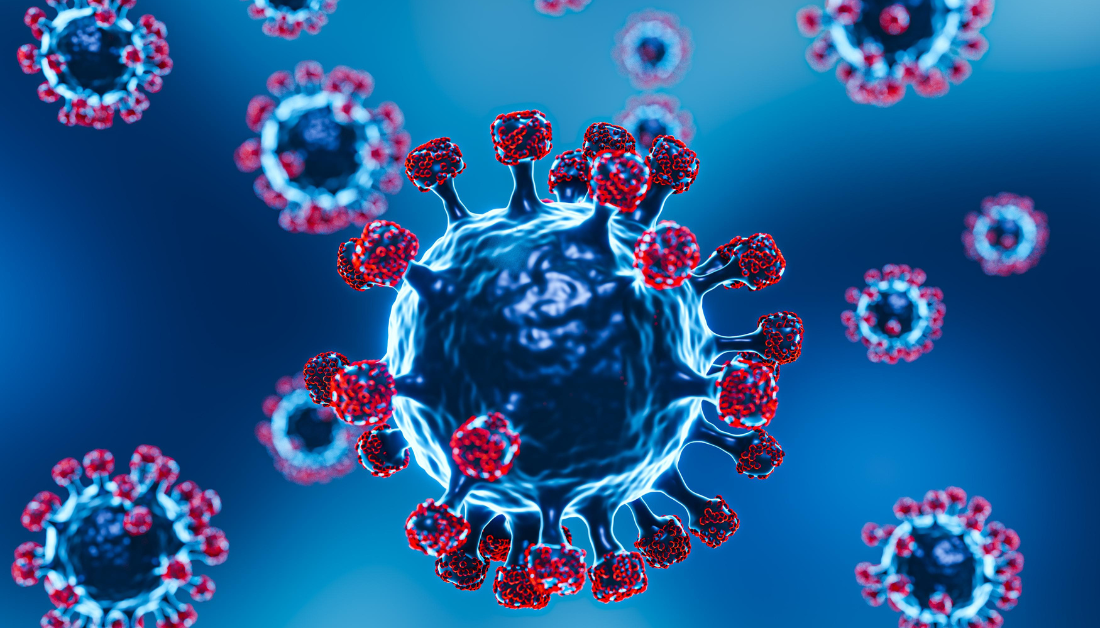

eLAMP – A novel electronic diagnostic test for bacteria and viruses has been created by researchers at the University of Surrey.
The researchers, led by Professor Johnjoe McFadden, created an electronic diagnostic test known as ‘Electro-chemical LAMP’ (eLAMP). The new test is inexpensive, quick, and sensitive.
eLAMP has the sensitivity of laboratory-based PCR testing but can be conducted at home using a smartphone.
How does the new diagnostic test work?
eLAMP converts the output of a PCR-like test called LAMP into a simple electric current. The diagnostic test device is small and has the potential to be miniaturized into a simple memory-stick-sized device that anyone with an app could operate.
The test can be performed at home because the device is tiny. The result can then be quickly relayed to health professionals to track the progress of infection and provide timely guidance to the patient.
Professor Johnjoe McFadden, corresponding author of the study and Professor of Molecular Genetics at the University of Surrey, said: “A key lesson we took from the COVID-19 pandemic is how crucial rapid, effective and cheap diagnostic tools that can be used at home are to monitoring and containing infectious diseases.
“Our test meets these criteria and can detect lower amounts of the SARS-CoV-2 virus compared to other home-based tests.
“We are looking for commercial partners to further develop the test and take it to market.”
Benefits of the test
The researchers tested human blood, saliva, and swabs from the nose and throat and discovered that their test was 93.33% accurate.
They discovered that the test works effectively at room temperature, with results available after 45 minutes.
It is critical to develop more effective coronavirus testing methods.
Since the World Health Organization declared SARS-CoV-2 a global pandemic in 2020, about six million people have died, and approximately two million cases are recorded globally every day.
The virus generally affects people’s lungs. Coughing, fever, and difficulty breathing are all symptoms. It can cause cardiac difficulties and organ failure in severe cases.
Dr Khushboo Borah Slater, co-author of the study from the University of Surrey, said: “SARS-CoV-2 is likely to be around for a long time and, unfortunately, new difficult viruses are likely to emerge.
“It’s crucial to keep working on better ways to test for the coronavirus, and our goal is to further develop our diagnostic test so that it can be easily used everywhere to help control the disease and prevent future outbreaks.”
For more details: Development of a loop-mediated isothermal amplification (LAMP)-based electrochemical test for rapid detection of SARS-CoV-2
https://doi.org/10.1016/j.isci.2023.107570
more recommended stories
 New Blood Cancer Model Unveils Drug Resistance
New Blood Cancer Model Unveils Drug ResistanceNew Lab Model Reveals Gene Mutation.
 Healthy Habits Slash Diverticulitis Risk in Half: Clinical Insights
Healthy Habits Slash Diverticulitis Risk in Half: Clinical InsightsHealthy Habits Slash Diverticulitis Risk in.
 Caffeine and SIDS: A New Prevention Theory
Caffeine and SIDS: A New Prevention TheoryFor the first time in decades,.
 Microbial Metabolites Reveal Health Insights
Microbial Metabolites Reveal Health InsightsThe human body is not just.
 Reelin and Cocaine Addiction: A Breakthrough Study
Reelin and Cocaine Addiction: A Breakthrough StudyA groundbreaking study from the University.
 Preeclampsia and Stroke Risk: Long-Term Effects
Preeclampsia and Stroke Risk: Long-Term EffectsPreeclampsia (PE) – a hypertensive disorder.
 Statins and Depression: No Added Benefit
Statins and Depression: No Added BenefitWhat Are Statins Used For? Statins.
 Azithromycin Resistance Rises After Mass Treatment
Azithromycin Resistance Rises After Mass TreatmentMass drug administration (MDA) of azithromycin.
 Generative AI in Health Campaigns: A Game-Changer
Generative AI in Health Campaigns: A Game-ChangerMass media campaigns have long been.
 Molecular Stress in Aging Neurons Explained
Molecular Stress in Aging Neurons ExplainedAs the population ages, scientists are.

Leave a Comment